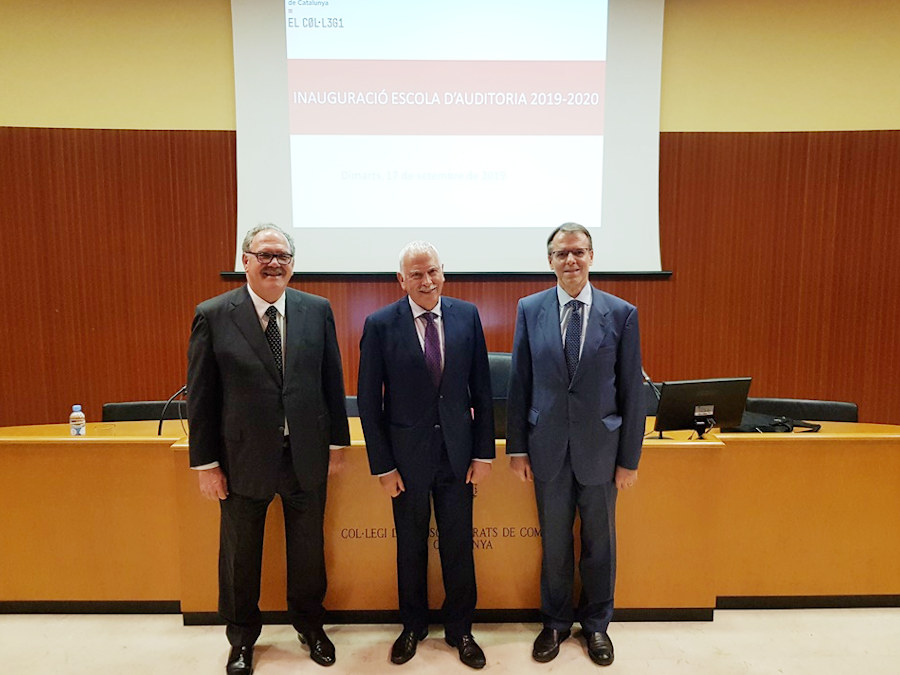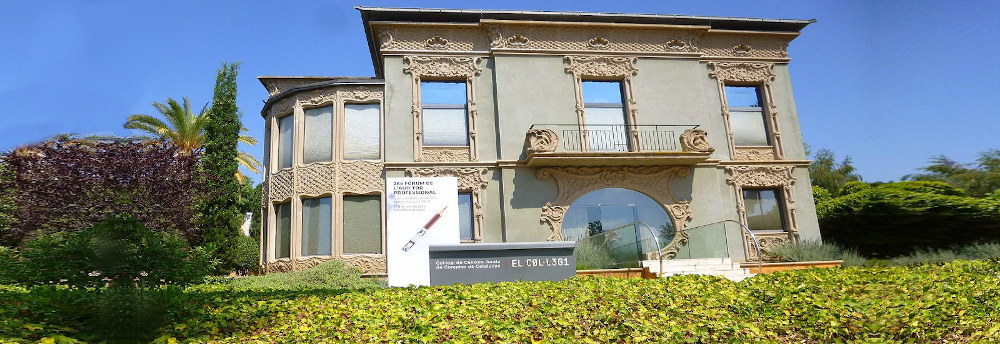Oriol Amat inaugurates the academic course of the Audit School of the Association of Certified Censors of Accounts of Catalonia
Oriol Amat, professor at the Barcelona School of Management of the Pompeu Fabra University, former president and founder of the Catalan Association of Accounting and Management and full academician and member of the Governing Board of the Royal European Academy of Doctors-Barcelona 1914 (RAED ), delivered last September 17 the opening speech of the academic year 2019-2020 of the Audit School of the Association of Certified Censors of Catalonia. An act that also involved Alfredo Rocafort, full academician and president of the Governing Board of the Royal Academy. The session was led by the president of the Association, Antoni Gómez, who announced a new Strategic Plan for the School beyond the 2020 horizon.
In a talk where he addressed the present and the future of the Catalan economy, Amat highlighted the resilience of the Catalan business in the face of the global economic slowdown and defended that, despite the many internal and external turbulence, companies have emerged reinforced from the economic crisis and that 2019 can be a good year in terms of economic evolution for Catalonia. The academician supported his diagnosis in a series of indicators that, in his opinion, allow to be optimistic. In this line, he said that the Catalan economy can close 2019 with a GDP growth of between 2.1% and 2.2%, a positive circumstance “because all growth above 1% implies the creation of jobs”.
Amat indicated that during the 2007-2018 period the export intensity of Catalan companies grew between 19% and 30%, and that if in 1995 foreign sales were broken down between 63.5% to the rest of Spain and 36,5% to the rest of the world, in 2018 the terms were significantly reversed and exports already accounted for 64.6%. Likewise, he pointed out that business profitability on invested capital reached 14% in 2018, that the number of companies in the 2014-2018 period grew 7.4% and that the weight of the industrial sector in Catalonia was 20.3% in 2018. “A positive fact that denotes a well diversified economy”, he said.
As negative aspects, Amat spoke about the lack of investment in R&D and the uncertainties derived from the current political climate, together with a percentage of the population at risk of poverty. When referring to unemployment figures, the economist and auditor said that Catalonia is close to the technical unemployment threshold, which stands at around 6% and explains the existence of the submerged economy. And he saw in Brexit an opportunity more than a problem. “The negotiations within the framework of the member countries of the European Union would be simpler in the absence of the United Kingdom. In aspects related to what the role of the State should be or in terms of bureaucracy there are too many things that separate the United Kingdom from the rest of its still community partners”, he concluded.
Rocafort, on the other hand, addressed the importance of the relationship between the academic world and the professionals and made reference to the work carried out by the presiding institution, which will soon sign a collaboration agreement with the Association of Certified Censors of Accounts of Catalonia for develop joint activities and projects.






